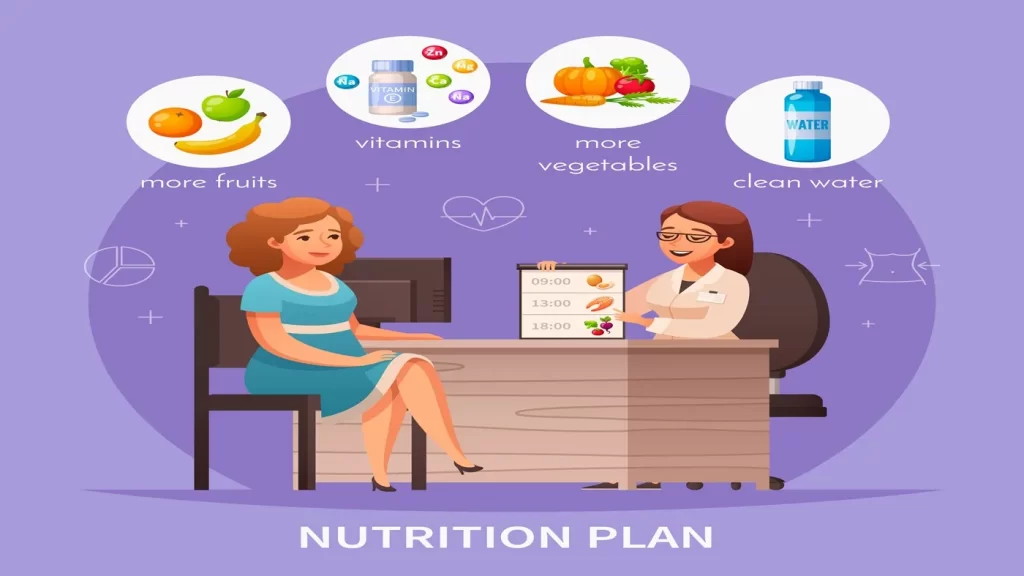
It is well established that optimal reproductive performance is linked closely to healthy nutrition. In developing countries, malnourished males and females are the major infertile populations. In addition, overconsumption of food, reliance on fast food, adherence to hypercaloric dietary regimens, and obesity can contribute to infertility.
What role does nutrition play in IVF?
A well-balanced nutritious diet should include fresh foods such as fruits, vegetables, proteins, and healthy fats essential for healthy eggs and sperm production, thereby increasing the chances of successful IVF. We recommend that women planning to conceive make necessary dietary adjustments in advance to ensure the availability of essential nutrients, minerals and vitamins. In some cases, additional supplements are required for optimum reproductive health.
What is a good fertility diet?
Your diet consists of a balanced amount of macronutrients, including carbohydrates, proteins, and fats. Whole grains, fruits, and vegetables contain complex carbohydrates that provide a steady release of energy and help regulate insulin levels in the body.
A significant factor in the success of the IVF treatment is the consumption of high- quality protein, including lean meat, fish, legumes, and dairy products, which play a crucial role in the production of reproductive hormones. Therefore, we recommend adding these sources to the diet of individuals undergoing IVF treatment.
By optimizing ovulation, improving sperm quality, strengthening the uterine environment, and increasing the likelihood of successful implantation, a healthy diet can have a positive impact on fertility outcomes.
It is important to consume healthy fats, such as those found in avocadoes, olive oil, and nuts, as they aid in the absorption and production of fat-soluble vitamins.
Vitamins and minerals are essential for a successful fertility treatment, and thus, it is crucial to focus on consuming foods that are rich in folate, iron, zinc, and Vitamin D. Foods that are high in folate, such as leafy greens, lentils, and citrus fruits, are particularly significant for early fetal development, and should be included in the diet to ensure a healthy pregnancy.
Iron is necessary for blood formation and is found in spinach, beans, and lean meats. Meanwhile, zinc-rich foods like pumpkin seeds, oysters, and whole grains are significant for reproductive organ development and hormone regulation.
Consuming Vitamin D, sourced from fatty fish, eggs, and fortified dairy products, has been shown to enhance fertility. Vitamin D regulates hormonal levels and increases reproductive function by influencing menstrual cycles. One can increase vitamin D
intake by soaking in sunlight and consuming Vitamin D-rich foods like fatty fish, egg yolks and fortified dairy products.
Antioxidants play a crucial role in protecting the body against oxidative stress but can have adverse eMects on fertility and treatment outcomes. Citrus fruits and berries, tomatoes and leafy green vegetables are high in antioxidants, including Vitamins C and E, Beta-carotene, Selenium, etc. By consuming these items, you may enhance the quality of your sperm and lower your chance of miscarriage.
Increased fertility in both men and women is associated with high omega-3 fatty acids. For improved outcomes from fertility treatments, they support a healthy uterine lining, lower inflammation, and preserve reproductive hormones. Omega 3 fatty acids rich sources are fish and other seafood, nuts, and seeds (flaxseed, chia seeds and walnut)
Maintaining adequate hydration is significant for fertility but is frequently disregarded. Water promotes blood circulation, eliminates toxins from the body, keeps the cervical mucus production in check and keeps the reproductive organs operating at their best. Experts advise against consuming too beverages and try to drink at least eight glasses of water each day.
How to improve egg quality for pregnancy?
- Make sure to lead a stress-free, healthy
- Maintain healthy weight and
- It is important to avoid consuming excessive amounts of sugar or smoking, as they can significantly accelerate the ageing of your
- Certain supplements such as Omega 3 fatty acids, L-Arginine, Vitamin D and antioxidants like Vitamin E and Vitamin C are shown to improve egg quality and
Avoid these food items during fertility treatment.
It is essential to follow all the instructions provided by your IVF doctor, as an unhealthy diet may directly impact the outcome of your fertility treatment. The following foods may hurt IVF treatment.
- Excessive consumption of caMeine
- Refined Sugar
- Raw eggs
- Alcohol
- Carbonated drinks
Can eating papaya affect Fertility Treatment?
Papaya fruit has both papain and pepsin. Research suggests that consuming papaya while undergoing fertility treatment may increase your chance of miscarriage and may also stunt the growth of the developing fetus. If you are receiving infertility treatment, we suggest you refrain from eating papaya.
How to improve egg quality?
For eggs to develop into embryos, they must exhibit a suffiicient degree of quality to facilitate implantation within the uterus. A healthy fertility diet has been shown to promote both the quantity and quality of eggs, thus enhancing the potential for successful fertilization.